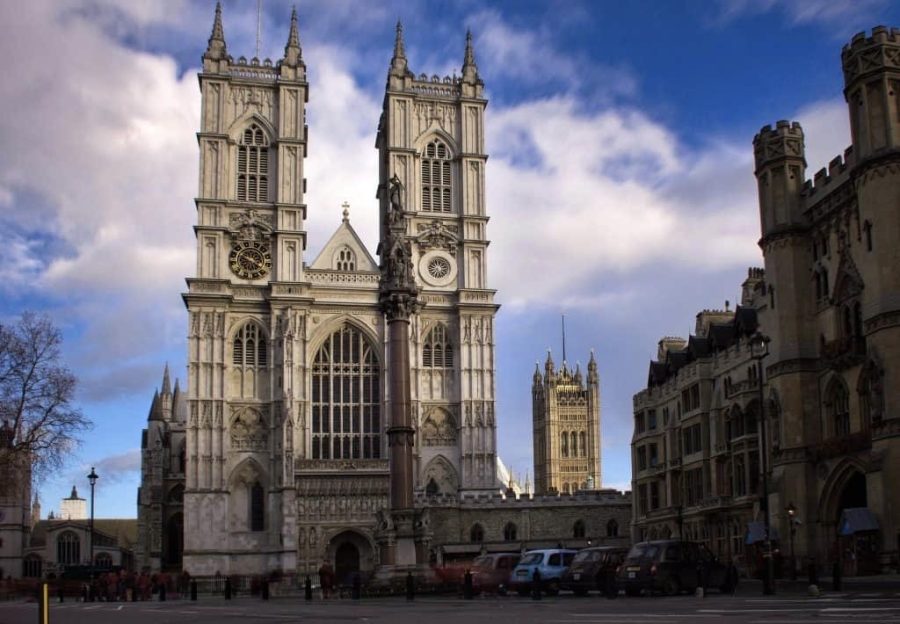God, Hallowed Be Thy Gender
Despite what Ariana Grande said, we really can’t be sure if God is a woman. While the language of the Church of England should reflect this fact, changing that gendered language is a much more nuanced issue than it may initially seem.
Last month, officials of the Church of England announced that they were considering implementing the use of gender neutral language in how they refer to God. This is a remarkable step forward in dismantling the patriarchal language of one of society’s foremost institutions.
While I doubt the extensive validity of the church’s claim that using gender neutral language is “nothing new,” as “Christians have recognized since ancient times that God is neither male nor female,” this announcement comes amidst more discussion and acceptance of a genderless God, as gender is an arbitrary concept enforced by societal norms.
Many Christians have already been using gender neutral language to describe God. Yii-Jan Lin, an associate professor at Yale Divinity School, says that the way we often refer to God, with masculine pronouns, is a result of a “patriarchal society through almost all of history. And so that has just been a part of human constructions of God, which has been dominated by masculine power.”
That being said, I am skeptical if such language will ever be implemented and what kind of significance it will have as the Church of England “currently has no plans to drop the use of male pronouns for God.”
In the weeks following the Church of England’s announcement, the church’s spokesperson has been quick to clarify that “there are absolutely no plans to abolish or substantially revise currently authorized liturgies and no such changes could be made without extensive legislation.” This is an interesting clarification because… then what is the plan, if not to revise existing liturgies? Where and when exactly will the gender neutral language for God be implemented?
Take the Lord’s Prayer, for example. Even those of us who are only somewhat Christian and hardly religious know that it begins with “Our Father.” How does the church plan on adjusting that prayer to include neutral language? Should they even change this language, because in changing the pronouns and switching “Father” to “Parent” that would also change the connotation of the prayer? “The fact that God is called ‘Father’ can’t be substituted by ‘Mother’ without changing meaning, nor can it be gender-neutralized to ‘Parent’ without loss of meaning,” according to Rev. Dr Ian Paul.
I understand that this is probably one of the main questions to be deliberated by church officials, but, along with their announcement, the Church of England should have at least given some insight as to how the proposed language changes would be put into practice.
Without any specifics on how exactly these changes would be implemented, and already being told not to expect any major liturgical changes, it feels as though this is merely a ploy to bolster the church’s falling attendance levels. This would not be the first time in recent years that the Church of England has done something similar — as in, implement, or float the idea of, a modern practice, and then not follow it up with any meaningful action. For example, around the time of the announcement regarding rhetorical changes, the Church of England stated that they would allow same-sex couples to be blessed in the church following their marriage ceremonies, yet they still aren’t allowed to get married in an Anglican church. Such half measure probably appeased some people who have been critical of Christianity’s historically staunchly anti-LGBTQ+ stance, but the lack of definitive acceptance and embrace of queer people makes the decision feel slightly shallow. It also causes one to question if the decision was motivated by a genuine desire to be more inclusive, and how much of it is motivated by their need to supplant a decreasing audience? Such a question can be applied to the neutral language proposal, too.
Significant or not, if these changes are ever made it is unclear when they will actually be enacted. Considering that the church has been discussing making such linguistic changes since 2014, I wouldn’t hold your breath.
At first glance, it seems as though the Church of England’s decision to consider implementing gender neutral language in reference to God is a wholly positive thing, as it reflects changing attitudes and modern understandings of religion. Yet the lack of clarity in how exactly the rhetoric will be altered exposes the hollowness of the institution and calls the sincerity of the decision into question.
Nicole Braun, FCRH ’24, is an English major from Saddle River, N.J.

Nicole Braun is a senior from Saddle River, N.J. and she is thrilled to be a member of Volume 105! Her love for writing and editing led her to begin writing...










































































































































































































